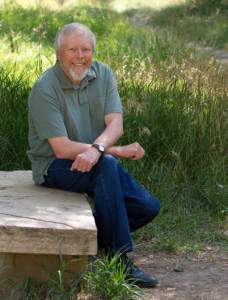 Even before the advent of the Global Covid-19 Pandemic interpersonal connection in our modern world had already become quite challenging. We saw 2020 become a year of greater isolation. At the same time, we also discovered the value of connection.
Even before the advent of the Global Covid-19 Pandemic interpersonal connection in our modern world had already become quite challenging. We saw 2020 become a year of greater isolation. At the same time, we also discovered the value of connection.
Fitness and wellness professionals have increasingly had to let go of hands-on, in-person meetings with their clients. Zoom sessions call upon us to be even better communicators than before. In addition to the consultative knowledge your clients have sought you out for, they are looking for connection.
Connection builds relationship, rapport, trust, and an openness of communication that leads to accomplishment. The door to greater connection opens when our clients feel heard, understood, appreciated and accepted without judgment. Much of that starts with great listening.
Health and wellness coaches are continually praised for their tremendous skill at listening. What makes them great listeners? One of the ways they do this is by continually implementing Stephen Covey’s Habit #5 – Seek first to understand, then to be understood.
Covey’s Seven Habits of Highly Effective People (https://www.franklincovey.com/the-7-habits/) , was named one of the most, if not the most influential business book of the 20th Century. With over 40 million copies sold in over 50 languages it still provides solid guidelines for effective ways of interacting and being.
Most People Listen With The Intent To Reply, Not To Understand

“If you’re like most people, you probably seek first to be understood; you want to get your point across. And in doing so, you may ignore the other person completely, pretend that you’re listening, selectively hear only certain parts of the conversation or attentively focus on only the words being said, but miss the meaning entirely. So why does this happen? Because most people listen with the intent to reply, not to understand.” https://www.franklincovey.com/the-7-habits/habit-5/
A confident coach has little need to rush to get a point of their own across. Instead they display a perpetual curiosity in what the other person thinks, feels and is experiencing. “Tell me more about that?” It is a request for clarification that lubricates the conversation and keep the ‘client’ elaborating and as they do, they are exploring the subject themselves, organizing their thoughts on it and putting it into words, yielding realizations and insights.
How often we have seen in recent years where the point of view of the other person is not honored if there is even some initial disagreement? How can we find common ground if the rush to press our own viewpoint rides roughshod over seeking deeper understanding of the other person’s stance?
“You listen to yourself as you prepare in your mind what you are going to say, the questions you are going to ask, etc. You filter everything you hear through your life experiences, your frame of reference. You check what you hear against your autobiography and see how it measures up. And consequently, you decide prematurely what the other person means before he/she finishes communicating.” https://www.franklincovey.com/the-7-habits/habit-5/
If this is how we are taking in what the other person is saying – seeing how it compares with our own autobiography – then judgment is not far off. Or, if we are sincerely trying to help and we are busily trying to think of what great question we can ask next, are we still listening in the present moment?
F.A.V.E.
When we manage to be fully present with our ‘client’ and seek to understand their experience, their view of the world, their values, needs and dreams, and then acknowledge this connection deepens. When we validate the other person’s feelings, affirming that they have a right to feel the way they feel, and then convey empathic understanding our connection is complete.
To help coaches and other human helpers remember this I’ve created the acronym F.A.V.E. – First Acknowledge, Validate and Empathize. When we seek to understand first (and then to be understood ourselves later) we are free and present to connect in this way. Often what gets in the way is our desire to help by providing a solution before we demonstrate to the other person that we have truly heard them and made our best effort to understand them.
Brené Brown, in her video on empathy (https://archive.org/details/Bren_Brown_on_Empathy) stresses the point that “The truth is rarely can a response make things better. What makes things better is connection.” For her connection is “the energy that exists between people when they feel seen, heard, and valued; when they can give and receive without judgement; and when they derive sustenance and strength from the relationship.” (https://brenebrown.com/blog/download/page/7/)
And to Be Understood
 There is a distinct difference between a coaching relationship and a friendship. The coach’s role is to be there for their client while putting their own agenda and needs aside. In healthy friendships there is a mutuality of need and the fulfillment of those needs. That’s not to say that the coach is passive mirror to their client. The coach can share their own observations of their client and express themselves in an authentic way that allows their own genuine self to show through. In that sense, the coach also gets to ‘be understood’.
There is a distinct difference between a coaching relationship and a friendship. The coach’s role is to be there for their client while putting their own agenda and needs aside. In healthy friendships there is a mutuality of need and the fulfillment of those needs. That’s not to say that the coach is passive mirror to their client. The coach can share their own observations of their client and express themselves in an authentic way that allows their own genuine self to show through. In that sense, the coach also gets to ‘be understood’.
In the kinds of everyday relationships, we have with friends, family and colleagues our own need to be understood is also of value. When we are in conversation in these relationships, we can engage in a mutual exploration of both the other person’s thoughts, ideas, etc., and of our own. Ideally it becomes a dance of shared respect and curiosity, going back and forth with ease. When we keep exercising our listening skills it meets the other person’s needs to be heard and understood and frees them up to inquire of us, to explore our side of things and hopefully to even discover common ground.
Connecting in 2021
So, in the coming year how can we be more ‘coach-like’ in our communicating and in our connecting with others? How can we make 2021 a year where connections deepen despite the challenges? Here are some ideas.
- Seek first to understand, then to be understood.
- Inquire from a mindset of non-judgmental curiosity.
- FAVE – First Acknowledge, Validate and Empathize
- Don’t rush to solutions.
- Have fun dancing together in a mutual exploration.
- Discover common ground.
- Celebrate it and life together.
Originally published on Real Balance blog. Reprinted with permission.
Dr. Michael Arloski is the CEO and Founder of Real Balance Global Wellness Services, Inc. (www.realbalance.com). Real Balance has trained thousands of wellness coaches worldwide. Dr. Arloski is a board member of The National Wellness Institute, and a founding member of the executive team of The National Consortium For Credentialing Health and Wellness Coaches. He is author of the leading book in the field of wellness coaching: Wellness Coaching For Lasting Lifestyle Change, 2nd Ed.
